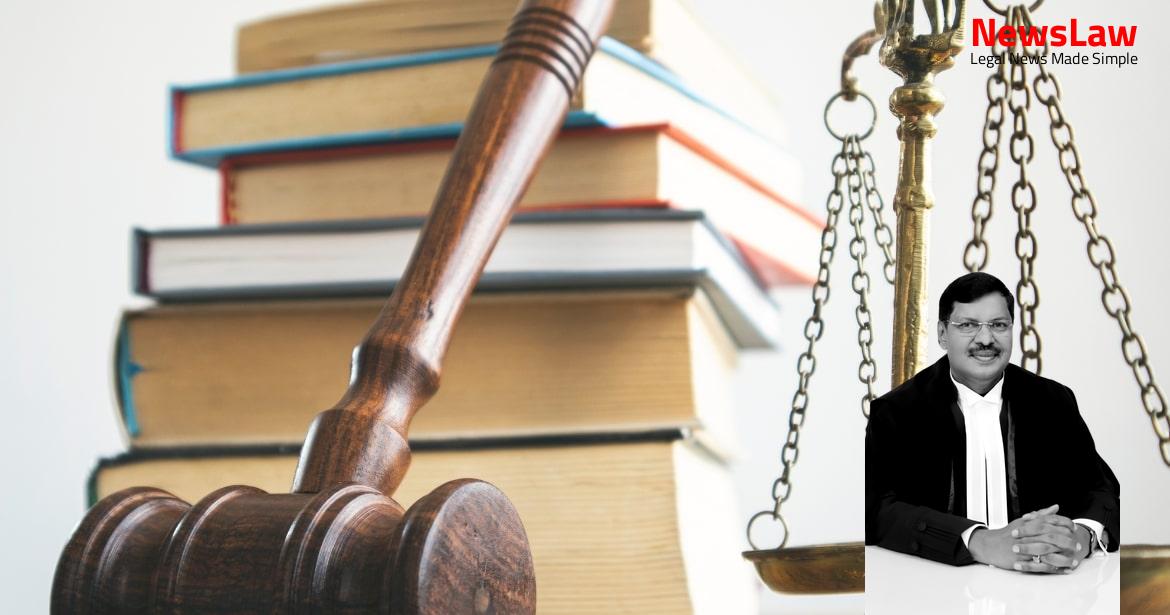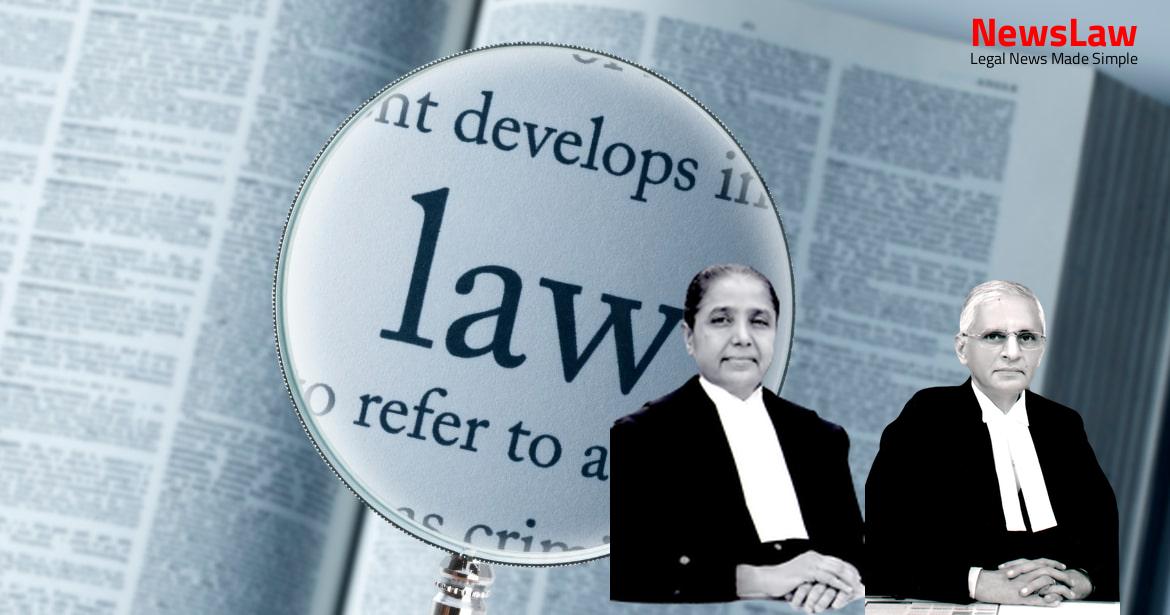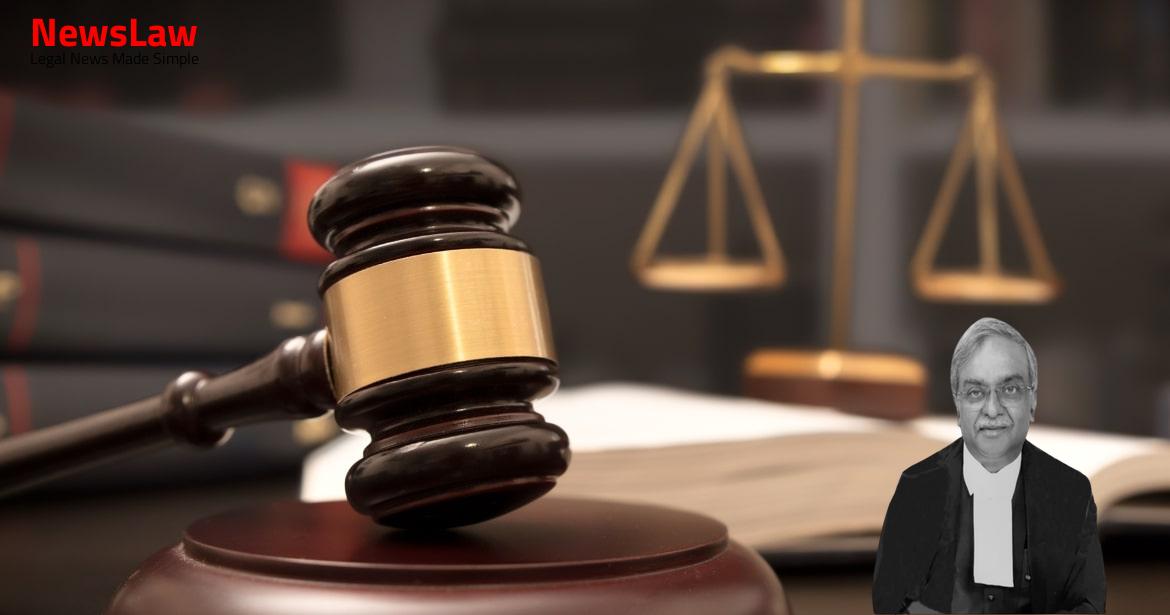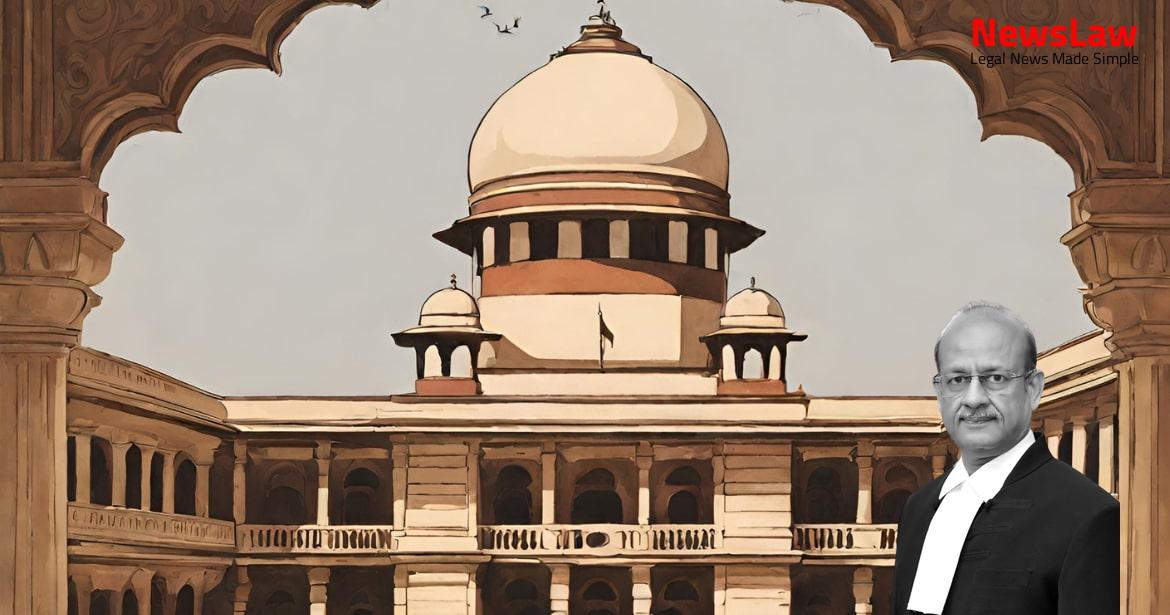In a significant legal ruling, the Supreme Court of India quashed criminal proceedings in a case where a settlement was reached between the Bank and the accused persons. The case involved a dispute over fraudulent documents leading to embezzlement of public funds. The Court considered the nature of the offenses and the settlement between the parties, ultimately deciding to quash the criminal proceedings. This judgment marks a crucial development in the realm of criminal law and legal procedures.
Facts
- Accused persons filed a Criminal Petition seeking quashing of the charge-sheet filed by CBI.
- Respondent Bank filed an Original Application before the Debts Recovery Tribunal for recovery of amounts due.
- CBI registered an FIR and found offences under IPC and PC Act.
- Accused persons settled the amount due with the Bank and received a No Dues Certificate.
- CBI filed a charge-sheet in the trial Court for offenses committed by the accused persons.
- Bank discovered fake, forged, and fabricated title documents leading to a written complaint.
- K. Suresh Kumar, the Sole Proprietor of M/s Sirish Traders, obtained credit facilities from Indian Bank secured by collateral security.
- The group loan account became a Non-Performing Asset due to failure of borrowers/mortgagors to repay.
- The High Court dismissed the Criminal Petition filed by the accused, stating that the settlement was private and did not have any court decree.
- The charges include using fraudulent documents to embezzle public money, which would be grave crimes against society.
- Accused Nos. 3 & 4 appealed against the High Court decision.
- During the case, the Debt Recovery Tribunal confirmed settlement as per the OTS, satisfying the dues of Indian Bank.
Issue
- Whether the power of this Court to quash criminal proceedings should be exercised independently
- Determining if continuation of criminal proceedings against the present appellants is justified
Also Read: Case Summarization: Revisiting the Power of Summoning Additional Accused
Arguments
- Shri Dama Seshadri Naidu, learned Senior Counsel for the appellants, argued that the accused persons should be absolved of their criminal liability due to a settlement between the Bank and the borrowers.
- He cited various judgments in support of his argument.
- The ASG representing the CBI, however, argued that the settlement between the Bank and the borrowers does not remove the criminal liability of the accused.
- Shri Naidu emphasized that the present appellants had no active role in the alleged offenses.
- He highlighted the amicable settlement between the Bank and the accused persons before the DRT, mentioning the amounts paid and realized through property auction.
- The ASG contended that the power under Article 142 should be sparingly exercised and that the appeal should be dismissed without exceptional circumstances.
- It was noted that one of the appellants is the wife of an accused person, and during the DRT proceedings, a significant amount was paid to the Bank leading to the closure of the loan account.
- ASG prays for dismissal of the present appeal.
- The learned judge of the High Court rightly dismissed the petition under Section 482 of the CrPC after considering the legal position.
Also Read: Quashing of Detention Order in the Case of Appisseril Kochu Mohammed Shaji
Analysis
- Courts consider offences with predominantly civil aspects or arising from commercial transactions, family disputes, or matrimony for quashing if full settlement is reached between parties.
- The presence of serious offences like Section 307 IPC or crimes under special statutes like the Prevention of Corruption Act do not warrant quashing based on compromise.
- Timing is crucial in determining whether to quash criminal proceedings, where cases settled early on may be more favorable for quashing.
- Accused involving in criminal conspiracies or heinous crimes like Section 307 IPC may not benefit from quashing even with settlement between parties.
- The High Court’s power under Section 482 of the Code can be used to prevent abuse of the legal process or to serve the ends of justice.
- The nature and gravity of the crime, along with the possibilities of conviction or the impact on society, are considered by the High Court when deciding on quashing criminal proceedings.
- The High Court exercised its power under Section 482 CrPC to settle the monetary loss suffered by the Bank.
- The inherent jurisdiction of the High Court cannot override an express bar provided in the law.
- The power under Article 142 of the Constitution aims to prevent obstruction to the stream of justice.
- Offences like murder, rape, dacoity are not fitting for quashing criminal proceedings based on compromise.
- The High Court’s power to quash criminal proceedings is different from a criminal court’s power to compound offences under Section 320 of the Code.
- The compromise decrees passed in suits amount to compounding offences in cases of cheating.
- Civil liability settlement does not equate to criminal liability settlement in the eyes of the law.
- Principles for the High Court to consider while accepting or refusing settlements and quashing criminal proceedings have been laid down in various cases like Manoj Sharma v. State and others and Bhajan Lal.
- The Court may quash cases involving civil disputes but will not do so if a prima facie case against the accused for framing charges exists.
- The judgments in B.S. Joshi, Nikhil Merchant, and Manoj Sharma were doubted and referred to a larger Bench for correctness.
- Power should not be exercised in prosecutions involving heinous and serious offenses of mental depravity like murder, rape, dacoity, etc.
- The accused are wives of Accused Nos. 1 and 2 in the case
- Continuation of criminal proceedings would oppress and prejudice the accused
- High Court should have exercised jurisdiction under Section 482 CrPC to quash the criminal proceedings
- Specific role attributed in the chargesheet was pertaining to Accused No.1
Decision
- The present appeal is allowed
- The judgment and order dated 1 September 2017 by the High Court of Judicature at Hyderabad is quashed
- The criminal proceedings against the appellants in C.C. No 16 of 2014 are also quashed
Case Title: K. BHARATHI DEVI Vs. THE STATE OF TELANGANA (2024 INSC 750)
Case Number: Crl.A. No.-004113-004113 – 2024



